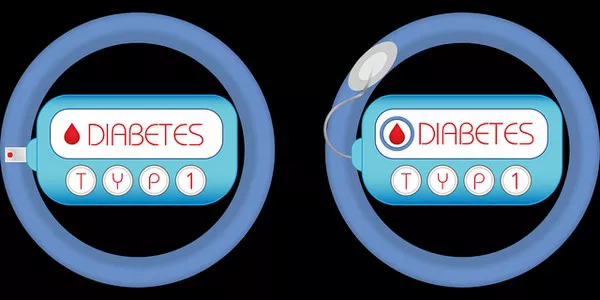Sugar, particularly in its refined forms, is a significant component of many modern diets and is often associated with various health issues, including obesity, type 2 diabetes, and cardiovascular disease. With growing awareness of the negative impacts of excessive sugar consumption, many individuals are choosing to eliminate or significantly reduce their sugar intake. This article explores the physiological and psychological changes that occur when one quits sugar for 30 days, focusing on the benefits, challenges, and the broader implications for overall health.
Understanding Sugar and Its Impact on Health
Types of Sugar
Sugar, in its various forms, is a type of carbohydrate that provides energy to the body. It comes in several forms, including:
Monosaccharides: Simple sugars like glucose, fructose, and galactose.
Disaccharides: Two monosaccharides linked together, such as sucrose (table sugar), lactose (found in milk), and maltose (found in malted foods).
Polysaccharides: Complex carbohydrates composed of long chains of sugar units, such as starches found in grains and vegetables.
Refined sugars, such as high-fructose corn syrup and white sugar, are often added to processed foods and beverages, contributing to excess calorie intake without providing essential nutrients.
The Role of Sugar in the Body
Sugar is broken down into glucose, which is used by cells for energy. When consumed in moderate amounts, sugar can be part of a balanced diet. However, excessive sugar intake can lead to a range of health problems:
Insulin Resistance: High sugar consumption can lead to increased insulin levels, which may eventually result in insulin resistance, a precursor to type 2 diabetes.
Weight Gain: Excess sugar is converted to fat, contributing to weight gain and obesity.
Inflammation: Excessive sugar intake can lead to chronic inflammation, which is associated with various chronic diseases.
The Effects of Quitting Sugar for 30 Days
Initial Withdrawal Symptoms
When individuals quit sugar, they often experience withdrawal symptoms as their bodies adjust to the sudden reduction in sugar intake. These symptoms may include:
Cravings: Intense cravings for sweet foods and beverages can occur as the body adjusts to lower sugar levels.
Headaches: Some people experience headaches as a result of changes in blood sugar levels.
Fatigue: A temporary feeling of fatigue or low energy may be experienced as the body adapts to using alternative energy sources.
Mood Swings: Changes in mood, including irritability and anxiety, can occur due to the impact of sugar withdrawal on brain chemistry.
Changes in Energy Levels
After the initial withdrawal period, many individuals report improved energy levels. The body begins to adapt to a more stable energy supply from other sources, such as fats and proteins. This transition can lead to more consistent energy levels throughout the day, reducing the energy crashes often associated with sugar consumption.
Improvements in Mental Clarity and Focus
Reducing sugar intake can have a positive impact on cognitive function. High sugar consumption has been linked to impaired memory and cognitive function. By eliminating sugar, individuals may experience improved mental clarity, better concentration, and enhanced overall cognitive performance.
Weight Loss
Eliminating sugar can contribute to weight loss. Since sugar is a major source of empty calories, cutting it out can reduce overall caloric intake. Additionally, lower sugar levels may reduce cravings for high-calorie, sugary foods, leading to healthier eating patterns and weight loss.
Better Blood Sugar Control
For individuals with type 2 diabetes or prediabetes, quitting sugar can lead to improved blood glucose control. Reduced sugar intake helps stabilize blood sugar levels, reducing the need for insulin and improving overall glycemic control. This can lead to better management of diabetes and a reduced risk of complications.
Improved Digestion
Reducing sugar intake can have a positive effect on digestive health. High sugar consumption can disrupt the balance of gut bacteria and contribute to gastrointestinal issues such as bloating and gas. By eliminating sugar, individuals may experience improved digestion and a healthier gut microbiome.
Enhanced Skin Health
Excessive sugar intake has been linked to various skin issues, including acne and premature aging. Quitting sugar can lead to clearer skin and a more youthful appearance as inflammation and insulin levels normalize.
The Science Behind Sugar Withdrawal and Adaptation
The Role of Dopamine
Sugar consumption stimulates the release of dopamine, a neurotransmitter associated with pleasure and reward. This “reward” response can lead to addiction-like behaviors and cravings. When sugar is removed from the diet, the brain’s dopamine levels may temporarily decrease, contributing to withdrawal symptoms. As the body adjusts, dopamine levels stabilize, and cravings diminish.
Blood Sugar Regulation
High sugar intake can lead to fluctuations in blood sugar levels, causing spikes and crashes. When sugar is removed, the body begins to rely on more stable sources of energy, such as fats and proteins. This shift helps regulate blood sugar levels more effectively and reduces the risk of hypoglycemia and hyperglycemia.
Metabolic Adaptation
The body undergoes metabolic adaptation when sugar is eliminated from the diet. This involves a shift from using glucose as the primary energy source to utilizing fats and ketones. This metabolic shift can enhance fat metabolism and improve overall metabolic health.
Challenges and Strategies for Quitting Sugar
Managing Cravings
Cravings for sugar can be one of the most challenging aspects of quitting. To manage cravings, individuals can:
Choose Healthy Alternatives: Opt for naturally sweet foods like fruits or sweet vegetables.
Stay Hydrated: Drinking plenty of water can help reduce cravings and maintain overall health.
Practice Mindful Eating: Focus on eating nutrient-dense foods and paying attention to hunger and fullness cues.
Overcoming Social and Environmental Triggers
Social situations and environmental cues can trigger sugar cravings. To overcome these challenges:
Plan Ahead: Prepare healthy snacks and meals to avoid reaching for sugary options.
Communicate Your Goals: Inform friends and family about your decision to quit sugar to gain their support.
Create a Support Network: Join support groups or online communities to share experiences and strategies.
Maintaining Long-Term Success
Sustaining a sugar-free lifestyle requires ongoing commitment. Strategies for long-term success include:
Set Realistic Goals: Establish achievable goals and celebrate progress along the way.
Monitor Your Health: Keep track of changes in energy levels, weight, and overall well-being.
Continue Learning: Stay informed about nutrition and health to make informed dietary choices.
Broader Implications for Health
Impact on Chronic Disease Prevention
Quitting sugar can have significant implications for preventing and managing chronic diseases. By reducing sugar intake, individuals can lower their risk of developing conditions such as type 2 diabetes, cardiovascular disease, and certain cancers. Improved metabolic health and weight management contribute to overall disease prevention.
Psychological Benefits
Eliminating sugar can also have psychological benefits, including improved mood and reduced anxiety. Stable blood sugar levels and reduced cravings contribute to a more balanced emotional state, enhancing overall mental well-being.
The Role of Nutrition Education
Education about nutrition and the effects of sugar is crucial for making informed dietary choices. By understanding the impact of sugar on health and learning about healthier alternatives, individuals can make better decisions and adopt sustainable lifestyle changes.
See also: What is Diabetes Mellitus?
Conclusion
Quitting sugar for 30 days can lead to a range of physiological and psychological changes. While the initial withdrawal period may be challenging, the long-term benefits include improved energy levels, better mental clarity, weight loss, enhanced blood sugar control, and overall health improvements. By managing cravings, overcoming social and environmental triggers, and committing to a healthier lifestyle, individuals can experience lasting positive changes and reduce their risk of chronic diseases. Education and support play essential roles in achieving and maintaining a sugar-free lifestyle, ultimately contributing to better health and well-being.
Related topics:
3 Signs of a Diabetic Emergency


























